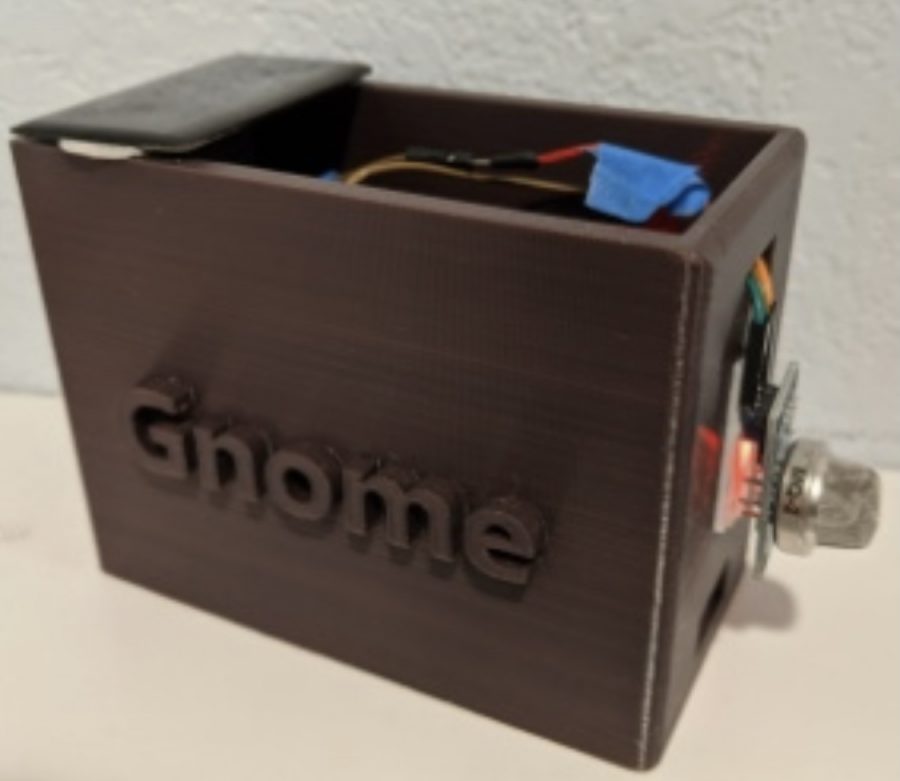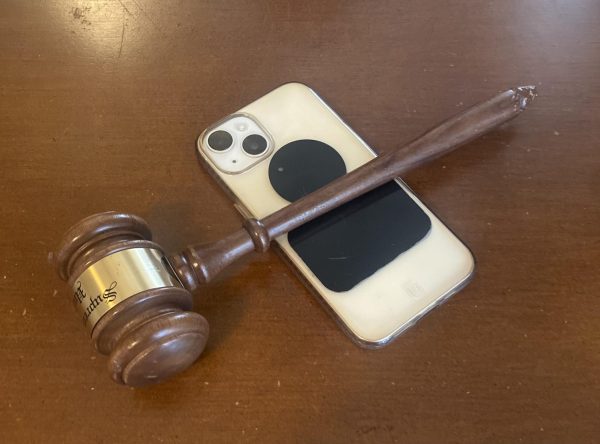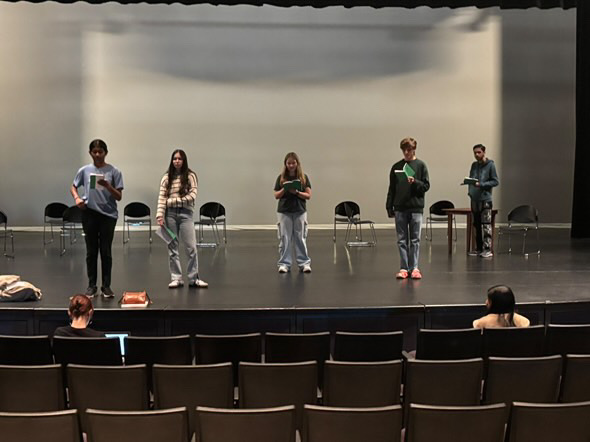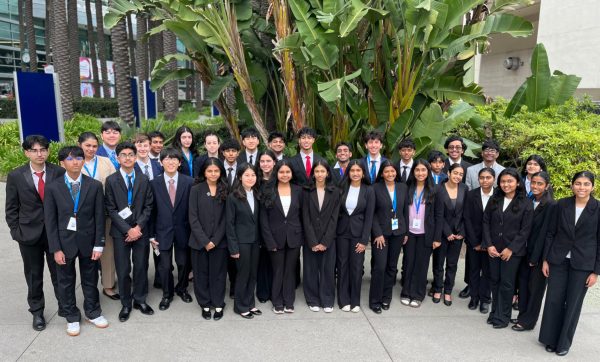A Solution to Stop the Spread
With the spread of wildfires in California, during the past months and even currently, numerous issues have occurred such as extremely poor air quality, orange skies, the deaths of millions of trees and people. An increasingly alarming problem, it is important to find ways to put out the flames. How can this issue be solved? Students from Wilcox’s DECA club have proposed a possible solution to prevent the spread.
The project, called Gnome, was created by DECA club members Smrithi Suresh, Shivaansh Kapoor, Rahul Ganesh, and Shaunak Kale, with their understanding of the critical problems of both the California and Australia wildfires going on last year. Dividing into two smaller teams, they split the work and collaborated efficiently. Suresh and Ganesh were in charge of the business and marketing aspects, while Kapoor and Kale were taking care of the technicalities such as software and hardware of the product. Gnome, named after its small gnome-like size, was designed as a cost-effective and efficient product. Despite its size, the project took months of long and hard work starting in mid-December until competitions in March. Much of the process included discussing with members on how to improve the slideshow, business pitch, and the product itself. After establishing a schedule, the group worked even more effectively and efficiently.
So how does the Gnome work? Several small devices are combined as a mesh network, by sending signals to other devices/nodes after it detects smoke from a fire. If one device detects smoke, then the detection goes to all other devices as well. Kale explains, “There is no way to communicate in forests in terms of wifi and cellular, so we used mesh network technology”. The project’s efficient design requires only one of the devices to be connected to WiFi and needs just a few seconds for the signal to reach the hub. Working on the business and marketing side of the project, Suresh explains,“We hoped that the instant transmission of data through this network as opposed to video would drastically reduce detection time and save acres, money, and lives”.
After completing the project, DECA partook in both state and national competitions in the Diamond challenge. The Diamond challenge, held by the University of Delaware, is an annual entrepreneurial competition to help students practice and support their interests. Similar to Shark Tank, there are judges who evaluate the project. They give advice and financial help, which are then distributed to promising entrepreneurs who are willing to pursue the field they are in. Since Gnome was a project meant to help people and fix environmental problems, the DECA members participated in the Social Innovation category for the competition. Ganesh, also in charge of business and marketing, describes how the competition went, “Our presentation was in a science-fair format: judges would walk around to competitor’s tables and hear their presentations”. With their great ideas and hard work, the DECA members emerged as first place winners in the entire division and qualified for the international semifinals.
Through the entire process of creating Gnome, the experience helped the members to understand business in depth. Suresh also describes how participating in this experience enabled her to meet and interact with companies, “We also met with a product design company called Spanner PD, that assisted us with design, timelines, and our business pitch. The experience I made was invaluable and led to a possible career path”. Kapoor explains that he and Shaunak were able to participate in the UC Santa Cruz Hackathon, CruzHacks, which allowed them to interact for weeks and even months with SpannerPD, who greatly liked their idea. He enjoyed the experience stating, “I guess we learned how entrepreneurship works and how you start from an idea and to the final product”. Ganesh also shares his benefits of this experience: “I learned how to present in a new type of format.” Watching his team members Shaunak and Shivaansh, he was also able to gain some valuable insights on how to program.
A project that took time, effort, and effective teamwork, Gnome proved to be an impressive and a possible solution to the wildfire crisis. As the wildfires continue to spread and occur more often, it is important to find solutions that will ensure the fires are stopped faster. Kale explains, “One of the biggest problems we saw impacting our lives, and even more so now, [is] the impact of wildfires- the billions of dollars of property burned as well as the lives lost.” With more students and teams brainstorming ideas, more projects like Gnome can be created, which can help lead to the first steps of addressing and gradually fixing this serious wildfire spread.






